Understanding How Low Engine Oil Can Affect Your Air Conditioning
Introduction
Hey there, curious mind! Ever found yourself wondering if low engine oil levels can muddle with the cooling comfort of your car’s air conditioning? Bingo, you’re in the right place. It’s a peculiar link, yes, but one that holds true.
In this breathable guide, we will swim through the ins and outs of engine oil levels and their sway on your AC performance. You’ll learn from my two-decade spanning experience, how to spot trouble before it hits your wallet and ruins your summer drive.
So, tighten your seat belts and let’s embark on this illuminating journey to uphold the health of your vehicle’s heart along with your cabin’s coolness. An ounce of prevention will refuel peace of mind and comfort.
Introduction
Overview of the Primary Question: Can low engine oil affect air conditioning system performance? This question pops up a lot among vehicle owners who feel there’s a link between their engine oil levels and their AC’s efficiency. Understanding this connection is key to keeping both systems in top shape.
How Engine Oil and Air Conditioning Systems Interact: In a vehicle, the engine oil and air conditioning (AC) systems carry out distinct tasks. Engine oil is critical for lubricating engine parts, cutting down on friction, and helping with heat dissipation. On the flip side, the AC system involves components like the compressor, condenser, and evaporator to keep your cabin cool. Despite their different roles, they both play vital parts in the vehicle’s overall performance, sometimes influencing each other indirectly.
Importance of Direct and Indirect Effects: Grasping how low engine oil can affect your air conditioning system, both directly and indirectly, is crucial for your vehicle’s health and performance. Engine oil directly impacts engine operations, but its indirect effects come into play with the car’s computer systems and overall thermal management. For example, low engine oil can lead to engine overheating. When this happens, the vehicle’s computers may cut off auxiliary functions like the AC to avoid further damage. So, keeping both systems well-maintained will help ensure smooth and efficient vehicle operation.
How Engine Oil and Air Conditioning Systems Operate
Understanding how engine oil and air conditioning systems function is crucial for maintaining your vehicle’s health. Let’s break down the roles of engine oil and air conditioning separately but also see how they interconnect in maintaining overall vehicle efficiency.
Engine Oil Functionality
- Lubrication: Ever wonder why your engine runs smoothly? That’s where engine oil steps in. By lubricating the engine components, it cuts down friction and wear, keeping mechanical damage at bay and extending the engine’s lifespan.
- Cooling: Engine oil isn’t just for lubrication; it also plays a crucial role in regulating the temperature of the engine. If you’ve ever wondered, why does my AC compressor shut off after 2-3 minutes, it could be a sign of issues needing lubrication and cooling systems to be checked.
- Performance Maintenance: Think of engine oil as the peacekeeper among your engine’s moving parts. It ensures they glide past each other effortlessly, leading to a smoother and more efficient operation.
- System Stress Reduction: When engine oil does its job right, it lessens the strain on your engine. This stress reduction has a ripple effect, benefiting connected systems like your air conditioning by maintaining overall vehicle health and efficiency.
It’s a heat-handling champ too! By moving heat away from critical spots in the engine, it helps keep things cool, making sure everything runs like clockwork.
Air Conditioning System Overview
- Key Components: Your car’s AC system is a trio of teamwork: the compressor, condenser, and evaporator. Each component plays its part to keep the cabin cool and comfy.
- Refrigerant Utilization: Central to the AC’s magic is the refrigerant. This special substance moves through the system, carrying heat from inside the car to the outside, leaving you with a refreshing breeze.
- Specialized Lubricants: Just like engine parts need lubrication, so does your AC compressor. However, it uses specific lubricants like Polyalkylene Glycol (PAG) oil, which are tailored to its unique needs and are quite different from engine oil.
Types of Oils Used in Air Conditioning Systems
- AC-Specific Oils: Unlike engine oil, the oils in AC systems, such as PAG or ester oils, are specially crafted for the AC compressors. These oils are critical in keeping the AC system running smoothly and efficiently.
- Lubrication and Moisture Prevention: These specialized oils not only lubricate but also fend off moisture. Keeping moisture out is essential because it can wreak havoc on the AC system’s efficiency and cause potential damage.
- Proper Maintenance: Keeping an eye on the oil levels in your AC compressor is key. Regular maintenance ensures that these levels are just right, which is vital for the system’s optimal functionality.
Direct vs. Indirect Effects of Low Engine Oil on Air Conditioning
You might be wondering if there’s any connection between low engine oil and your car’s air conditioning. Well, let’s get into the nitty-gritty of it all.
Direct Effects: Myths and Misconceptions
One myth that seems to persist is the idea that low engine oil directly messes with your AC performance. Trust me, that’s just not true. Your air conditioning system and the engine oil system have separate jobs. The AC’s role is to cool the inside of your vehicle using the compressor, condenser, and evaporator. Meanwhile, engine oil’s job is to keep the engine parts well-lubricated, reduce friction, and help with heat dissipation.
Mixing engine oil with AC compressor oil, such as Polyalkylene Glycol (PAG) or ester oils, can be bad news for your AC system’s health. These are two distinct systems working side by side but aren’t directly dependent on each other. So, if you’ve been hearing otherwise, you can safely chalk it up to a myth.
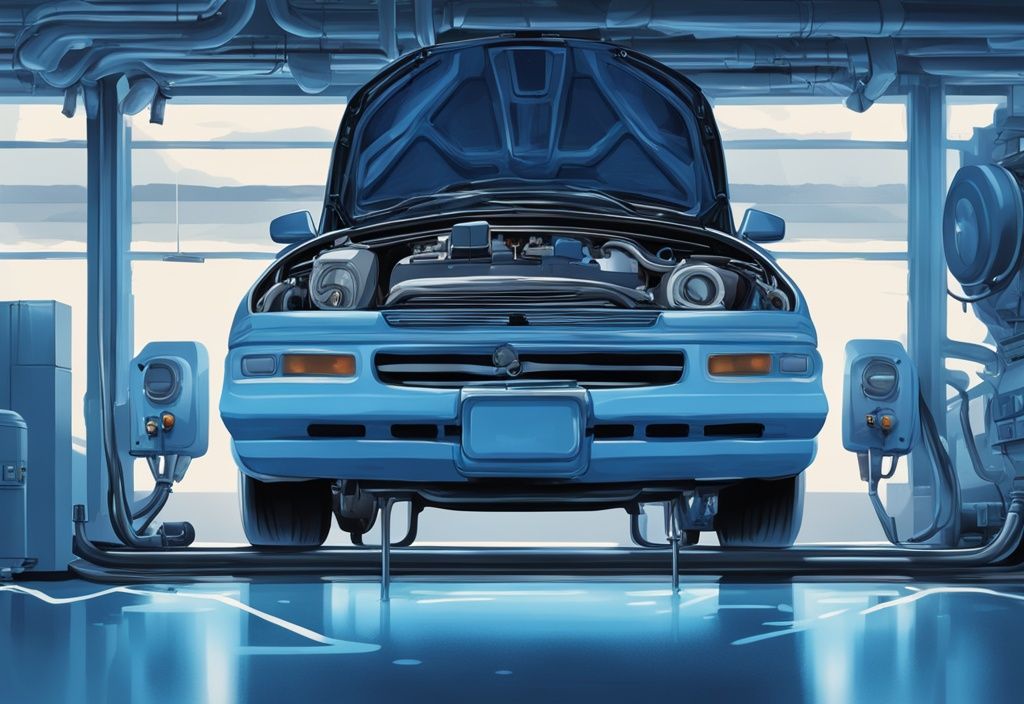
Indirect Effects: How Engine Performance Affects AC
Now, while low engine oil doesn’t mess with your AC directly, it can definitely have indirect effects. When your oil levels drop too low, your engine can overheat because it’s not getting the lubrication and cooling it needs. An overheating engine can cause a domino effect, making the entire system work harder—including your AC.
With an engine overheating, it’s like putting pressure on the whole vehicle. Your AC might not perform at its best because the car’s overall efficiency takes a hit. Plus, if the engine is really struggling, the car’s computer might decide to shut off the AC to keep things from getting worse. It’s a kind of a safety net to keep the engine running, but at the expense of staying cool.
The Role of Vehicle Computer Systems
Modern cars come with smart computer systems that keep tabs on things like engine performance and oil levels. These systems kick in to protect your engine from damage when oil levels dip too low or when overheating happens. If the computer senses low oil levels, it might turn off some secondary functions, such as the air conditioning, to reduce strain on the engine.
This is a strategic move to prioritize essential engine operation over creature comforts like AC. Knowing this can help you understand why keeping your engine oil at the right level is crucial. Proper maintenance helps ensure your car runs smoothly and your AC stays as cool as you need it to be.
The Impact of Overheating on Air Conditioning Performance
Why Engines Overheat Due to Low Oil
- Insufficient Lubrication: When your engine oil is running low, it’s like trying to slide across a dry slide – you just don’t get very far without friction. That friction can heat things up pretty quickly, causing your engine to overheat because it’s not getting the lubrication it needs.
- Cooling Deficiency: Think of engine oil as your engine’s personal cooling agent. It absorbs heat and carries it away from vital areas. When oil is in short supply, this cooling process is interrupted, and your engine can start to overheat.
- Stress on Engine Components: Overheating isn’t just about a hot engine; it puts stress on parts like the pistons and bearings, which can warp and wear out faster. This stress can trickle down to your air conditioning system, which depends on a well-maintained engine to function correctly.
Computer-Triggered Shutdown of Auxiliary Systems
- Vehicle Computer Response: Modern cars are pretty smart. When they detect the engine overheating because of low oil, the onboard computer goes into protective mode. It starts shutting down auxiliary systems, including your air conditioning, to save the engine from further damage.
- Examples of Affected Systems: Your AC might not be the only thing that gets turned off. Other systems, like the alternator, power steering, and even the radio, are also on the chopping block. This helps your engine redirect what little cooling power it has left to where it’s needed most.
- Protective Measures: The primary goal here is to keep your engine from failing completely. By shutting down non-essential functions, your vehicle ensures that any available oil and cooling resources focus on protecting critical engine components. This just might save your engine from a total meltdown.
Preventive Measures to Avoid Overheating
- Regular Oil Checks: Make it a habit to check your engine oil regularly. Keeping it topped up can prevent overheating and save your air conditioning from being shut down by the car’s computer.
- Adherence to Oil Change Schedules: Follow your vehicle’s recommended oil change schedule religiously. Fresh oil means better lubrication and cooling, keeping things running smoothly. Neglecting this can compromise oil quality and increase your risk of overheating.
- Comprehensive Engine Maintenance: It’s not just about the oil. Regular maintenance, including checking oil filters, coolant levels, and overall engine health, ensures everything is in tip-top shape. A well-maintained engine is less likely to overheat and compromise your AC performance.
Contamination and Mismanagement During Oil Changes
When oil changes aren’t conducted properly, it can lead to a myriad of problems for your vehicle’s air conditioning system. From contamination to mismanagement of components, these issues can severely impact the AC’s performance and efficiency. Let’s dive into the specifics of how these mistakes occur and what you can do to prevent them.
How Contamination Affects AC Components
Think about this: You’re in the middle of an oil change, and a bit of contaminated engine oil spills onto your AC components. It might seem like a minor mishap, but this can actually spell trouble. Key parts of the air conditioning system, such as sensors, belts, and pulleys, are particularly susceptible.
When oil gets on these components, it can cause them to become sticky or leave a film that disrupts their functionality. This could lead to a reduction in your AC’s cooling capacity, erratic behavior, or, in worst-case scenarios, a complete breakdown. This is why it’s crucial to manage engine oil properly to avoid contaminating these sensitive components.
Importance of Proper Handling During Oil Changes
If you’re changing the oil yourself, or even if you’re watching a mechanic do it, ensuring the right tools and methods are used is imperative.
Specialized tools and clean funnels, rags, and containers play a huge role in preventing unwanted messes or spills that could find their way into the AC system.
When handling these tools, make sure everything is free of contaminants. Any slip-up could transfer grime or oil to the AC components, leading to the issues we just discussed. Before starting, it’s important to understand whether your AC system is electric or gas, as this can affect the tools needed and the cleaning procedures.
Precision and care always win the day here, and trust me, it’s worth every extra second you spend to keep things clean.

Detecting and Preventing Cross-Contamination
Once the oil change is complete, a thorough inspection becomes your best friend. Make it a habit to check that all components are correctly placed and absolutely free of any oil residue.
Look out for any signs of contamination on the AC parts. If you spot any, clean them up right away. These meticulous post-change checks can help you avoid long-term issues related to cross-contamination. It’s all about making sure every part of your vehicle operates at top efficiency.
So, remember, keeping an eye on these simple yet essential steps can make all the difference. A spotless oil change means a smoothly running AC, and that, my friend, is worth its weight in liquid gold.
Can Low Engine Oil Affect Air Conditioning?
Signs Your AC May Be Affected Post-Oil Change
Ever wondered if your AC can be affected by low engine oil? It sure can. Here are some common symptoms you should keep an eye out for, especially after an oil change.
Common Symptoms to Look For
- Pungent Odor: If you notice an unpleasant smell coming from your AC vents, it may indicate contamination issues that occurred during an oil change. A spill or mishap can lead to this unwelcome surprise.
- Reduced Cooling Efficiency: A drop in the cooling ability of your AC system can be a sign that something went wrong during the maintenance process. You want your AC to blast cold air, not barely trickle it.
- Noisy Compressor: Unusual sounds or excessive noise from the AC compressor might suggest that contaminants have affected its smooth operation. It’s like your AC is trying to tell you it’s not happy.
- Inconsistent Airflow: If the airflow pattern fluctuates or becomes inconsistent, it could be due to residual oil affecting the components connected to the AC system. Air should be as smooth as a calm breeze, not a sporadic gust.
- Sudden Changes: Any abrupt shift in AC performance should be investigated, especially immediately after an oil change. These surprises are seldom fun and can sometimes hint at bigger issues.
If your AC starts acting up post-oil change, don’t fret just yet. Here’s what you can do to get to the bottom of it.
Steps to Take If You Notice Reduced AC Performance
- Check AC Settings: Ensure that the AC is set to the desired temperature and mode to rule out simple user errors. Sometimes it’s as easy as flipping a switch back to the cool setting.
- Inspect Engine Oil Levels: Verify that the oil levels are optimal as low oil can prompt the vehicle’s systems to reduce AC performance to protect the engine. Think of it as your car going into self-preservation mode.
- Look for Spills: Examine the engine bay for any oil spills that might have dripped onto AC components, which could compromise system efficiency. Cleanliness in the engine bay can prevent a ton of headaches.
- Contact a Professional: If problems persist, it’s crucial to seek help from a professional technician who can diagnose the exact issue and provide the necessary repairs. Sometimes, you just need a pro to take a look and set things right.
Remember, the key is to stay observant and proactive. By catching these issues early, you can ensure your AC keeps running smoothly, keeping you cool and comfortable on the road.
The Importance of Professional Maintenance
Taking your vehicle for professional maintenance ensures that both your engine and AC systems are well looked after. Below, we’ll dive into why this is critical and how it benefits you.
Expert Handling of Engine and AC Systems
Opting for professional maintenance brings a host of benefits, especially when it comes to the intricate systems of your vehicle’s engine and AC. Trust me, as someone who’s been around AC systems for over two decades, I can tell you that the pros know how to handle things in a way that DIY efforts often miss. They can spot potential problems and nip them in the bud, ensuring your engine and AC run smoothly.
Take engine oil, for instance. If it’s not properly handled, it can get contaminated, which might mess with your AC’s performance. So, bringing your car to a professional can save you from hiccups like incorrect oil levels or misplacements that disrupt your AC system.
Regular Inspections and Servicing
Now, if there’s one thing I’ve learned over the years, it’s that regular check-ups are essential. This is particularly true when it comes to preventing issues where low engine oil impacts your AC indirectly. A good, consistent service schedule helps catch potential issues early—things like oil leaks or engine wear that can lead to overheating and indirectly drag down your AC’s efficiency.
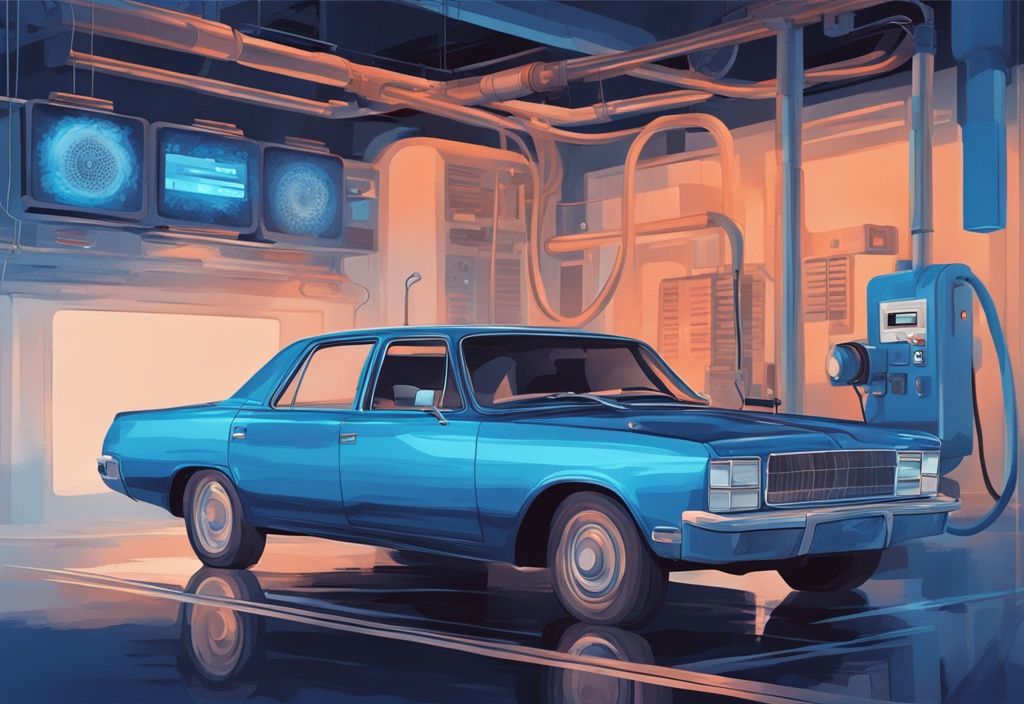
Consistent maintenance of both the engine and AC means fewer unexpected breakdowns. And don’t forget, when professionals do these inspections, they can promptly tackle any indirect issues affecting the AC due to low engine oil, keeping your vehicle in top shape.
Benefits of Professional AC Technicians
Let’s not overlook the expertise that professional AC technicians bring to the table. These folks know the ins and outs of your AC system, from measuring to replacing AC compressor oil—which is a different beast than engine oil. This specific knowledge ensures your AC runs effectively and has a long life.
Moreover, pros can spot and prevent problems arising from cross-contamination or the wrong handling of refrigerants and lubricants. By relying on their skills, you can be sure that both your engine and AC are in good hands, minimizing any indirect effects from low engine oil.
Conclusion
Recap of How Low Engine Oil Can Indirectly Affect Air Conditioning Performance
Low engine oil may not directly mess with the air conditioning system, but it sure can lead to engine overheating. And when that happens, your engine’s gonna feel the heat—literally. This added strain can affect all sorts of connected systems, including your AC. When the vehicle’s computer senses trouble, it might just shut down the AC to prevent further engine damage. You see where this is going, right? Less engine oil means a hotter engine, leading to reduced cooling efficiency inside your cabin.
Emphasis on Proper Maintenance to Ensure Both Engine and AC Systems Function Efficiently
Keeping your engine and AC system in tip-top shape starts with consistent and proper maintenance, including understanding the importance of oil changes, which you can learn more about in this helpful article on oil changes. Make it a habit to check your oil levels, stick to those scheduled oil changes, and always use the right type of oil. This can keep overheating at bay. Also, don’t skimp on maintaining the oil levels in your AC compressor and using recommended lubricants. Regular inspections are your best friend here—they can help nip potential problems in the bud, ensuring both systems run smoothly and efficiently.
Final Thoughts on Seeking Professional Help to Prevent and Mitigate Issues
Sometimes, the best move is to call in the pros. Professional technicians bring invaluable expertise for maintaining both your engine and AC system. They’ve got the know-how and the right tools to handle routine maintenance and tackle issues head-on. By avoiding the pitfalls of DIY repairs, professionals can ensure all systems work together seamlessly, promoting a longer, efficient performance for your vehicle’s engine and air conditioning system.
FAQ
Can low engine oil directly affect my car’s air conditioning system?
- No, the AC system and engine oil system are separate entities, meaning low engine oil does not directly impact your AC’s operation.
Why does my air conditioning performance drop when my engine oil is low?
- Low engine oil can cause overheating, which may lead the vehicle’s computer to deactivate the AC to prevent further engine damage.
How can I prevent contamination when changing engine oil?
- Ensure proper handling and that all components are correctly placed. Avoid exposing parts to contaminants to keep the systems clean and efficient.
What should I do if I notice signs of AC issues after an oil change?
- Check for spills or misplaced components, and consult a professional if the issue persists to ensure proper system functionality.
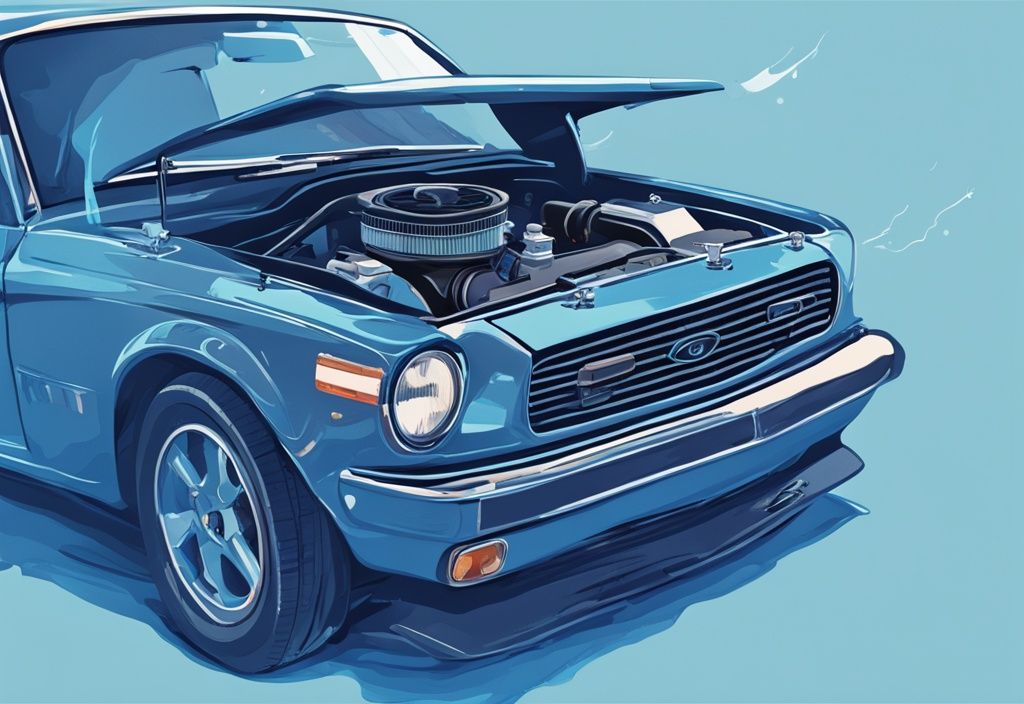

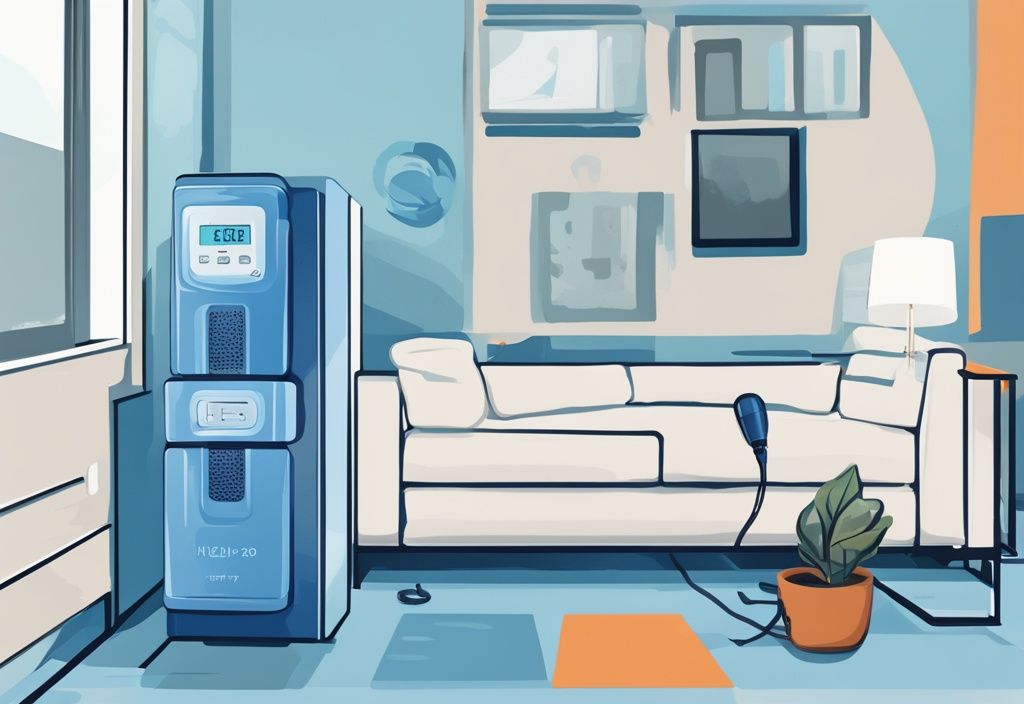
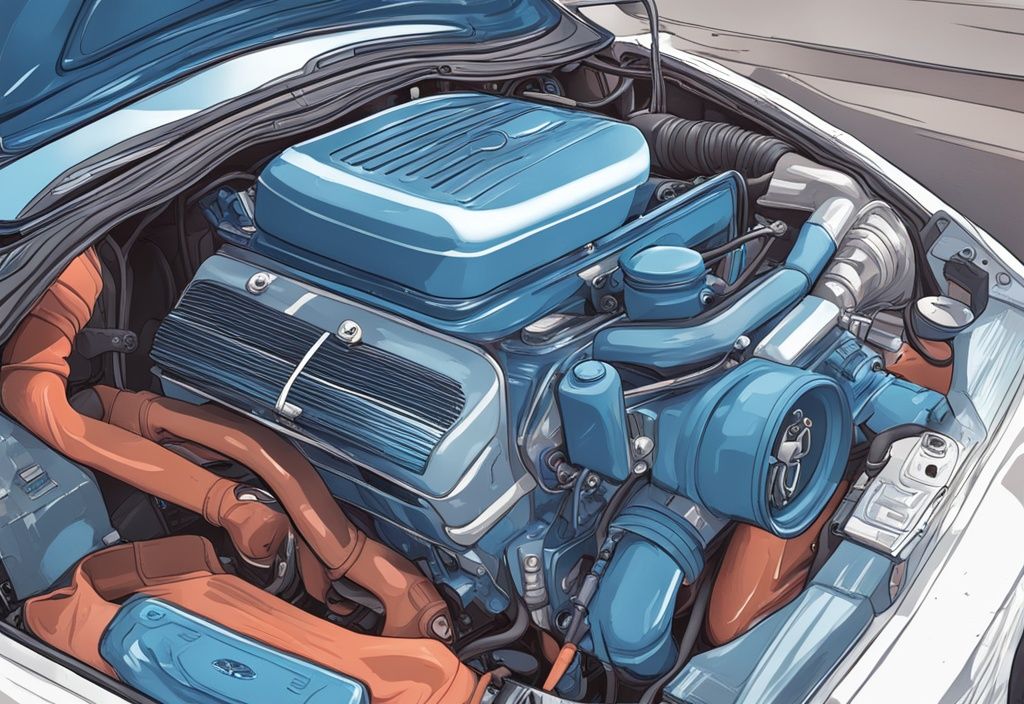
Post Comment